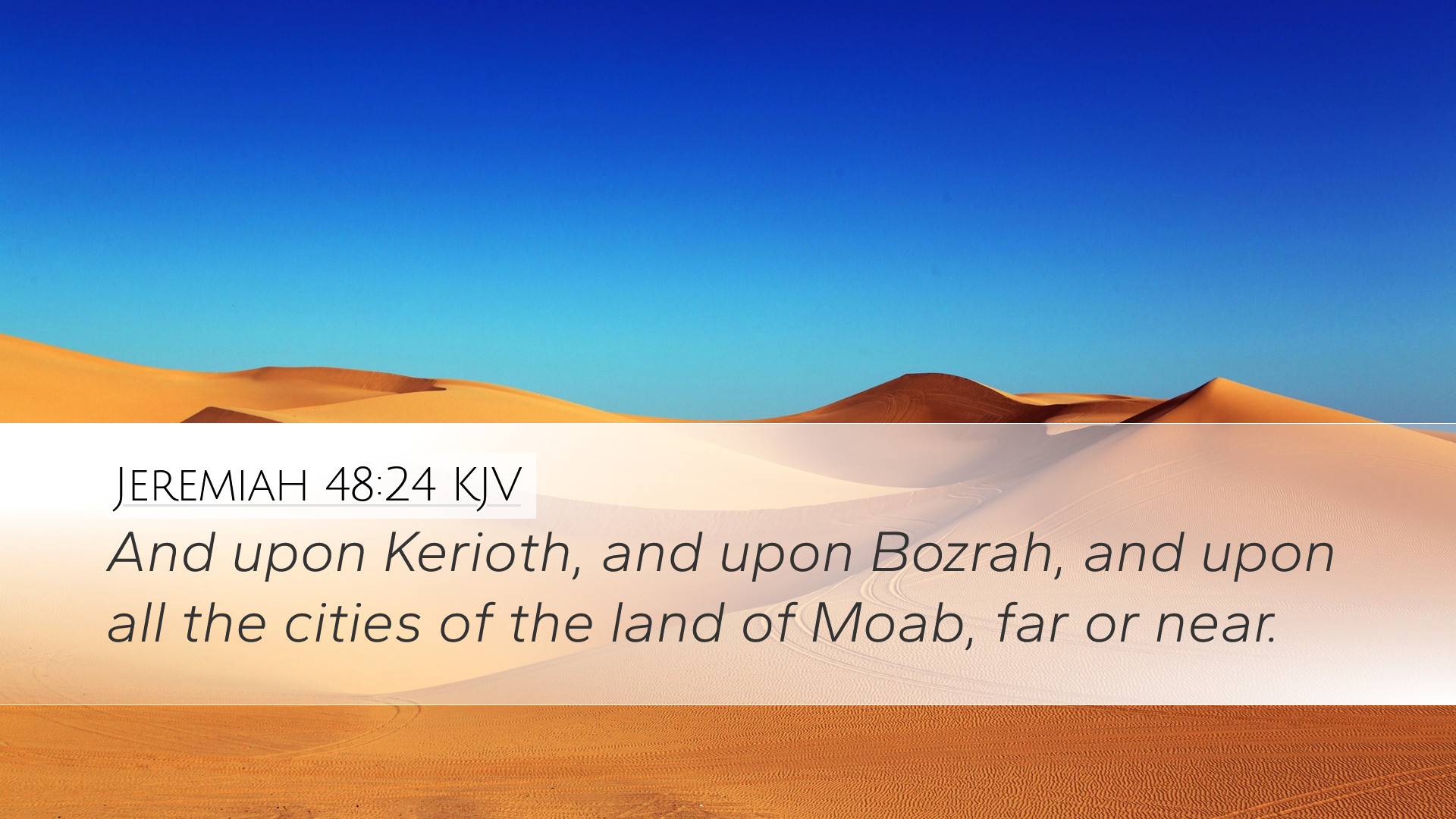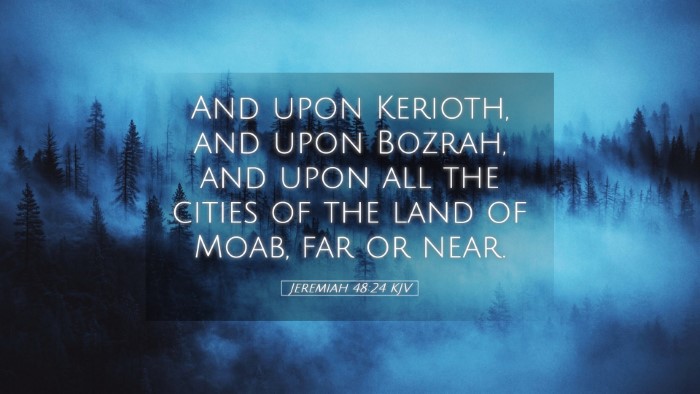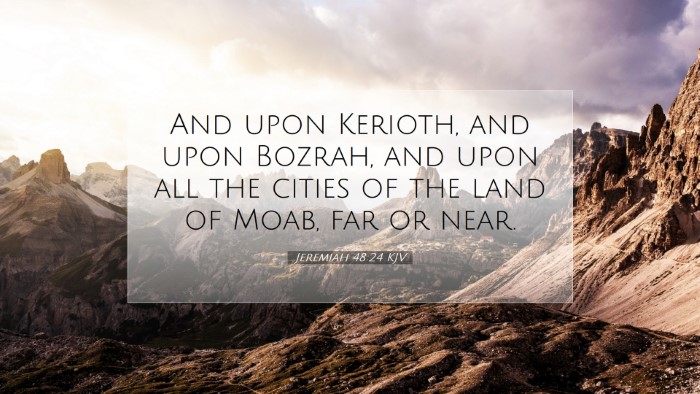Commentary on Jeremiah 48:24
Verse Text: "And upon Kerioth, and upon the cities of the land of Moab, and upon the inhabitants of the land of Moab, the sword of the Lord shall be upon them." (Jeremiah 48:24)
Introduction
This verse resides within a larger prophetic oracle against Moab, a nation which had a complicated relationship with Israel. Through various lenses, like those provided by Matthew Henry, Albert Barnes, and Adam Clarke, we can delve into the theological implications, historical context, and lasting lessons from this scripture.
Contextual Background
Jeremiah prophesied during a tumultuous period leading to the fall of Jerusalem. Moab, historically an adversary to Israel, finds itself the subject of divine judgment. This oracle highlights not just a specific geographic location but embodies God's judgment on an entire people.
Historical Significance
- Moab's Origins: Descendants of Lot, Moab continuously opposed Israel, exemplified during Israel's wilderness journey.
- Political Dynamics: During Jeremiah's time, Moab was caught in the geopolitical strife between Babylon and its neighboring nations.
- Sins Leading to Judgment: Idolatry, oppression, and pride characterized Moab's sins which led to divine retribution.
Theological Insights
Jeremiah 48:24 encapsulates core theological themes—divine justice, the sovereignty of God, and the consequences of sin. Here are insights from various commentators:
Matthew Henry
Henry emphasizes the severity of God's judgment. He remarks on how “the sword of the Lord” signifies not merely a physical defeat but a deep spiritual indictment. Henry interprets the mention of “Kerioth” as representative of Moab's fortified cities, indicating that no place can withstand God's might when His judgment is at hand.
Albert Barnes
Barnes highlights the universality of God’s judgment. He notes the keyword “cities” which illustrates the comprehensive nature of this judgment across Moab. Each city, symbolizing its inhabitants, faces impending doom if they do not repent. Barnes asserts that the identification of “the sword of the Lord” serves as a reminder of the seriousness of effective divine wrath against human disobedience.
Adam Clarke
Clarke further delves into the socio-economic implications of the prophecy. He points out that the fall of Moab would not only cause devastation but also reflect the Lord’s ultimate dominion over nations. Clarke links this event to broader themes of divine providence and the eventual restoration that follows judgment. His perspective serves to remind the reader that God's justice is always balanced with mercy.
Applications for Today
- The Nature of Divine Justice: Just as Moab faced God's judgment, modern readers must reflect on the integrity of their actions and the weight of divine moral standards.
- Repentance and Restoration: The narrative serves as a call for introspection and a warning against the pride that leads to downfall, urging individuals and nations towards humility and repentance.
- Understanding Sovereignty: The sovereignty of God is paramount—He oversees the rise and fall of nations and the moral fabric of society.
Conclusion
Jeremiah 48:24 is a solemn reminder of the realities of divine judgment and the need for nations and individuals to align with God's purposes. The insights from Matthew Henry, Albert Barnes, and Adam Clarke afford a multi-dimensional understanding of the text, offering wisdom that remains relevant to pastors, students, theologians, and Bible scholars striving for a deeper relationship with scripture.


